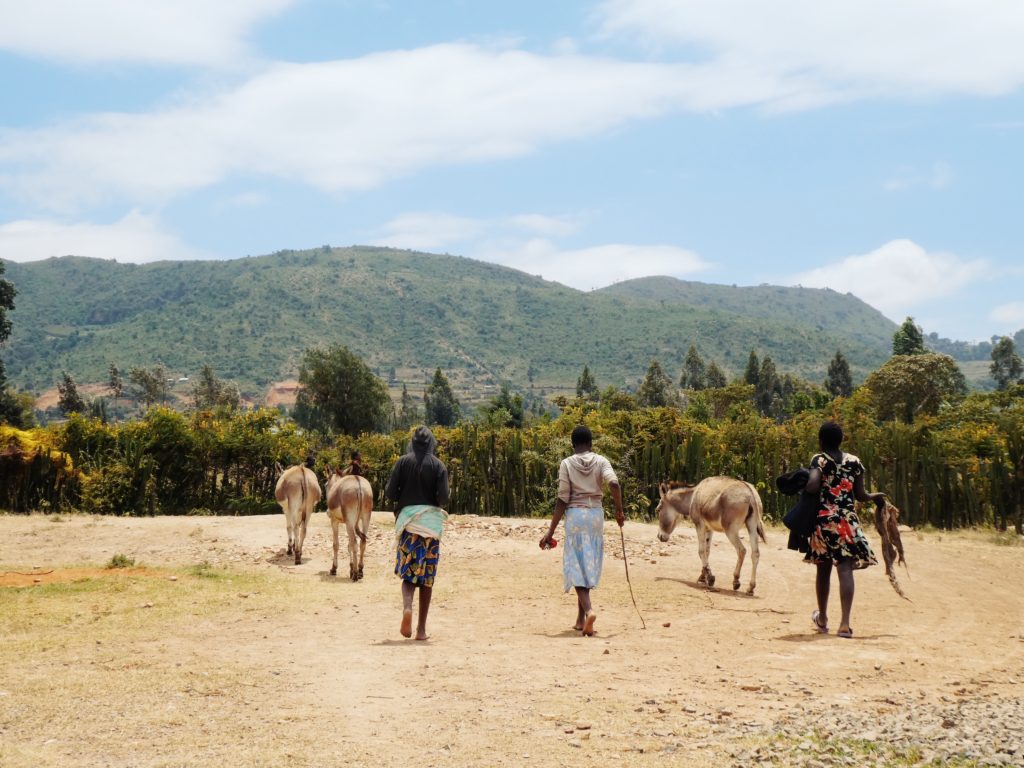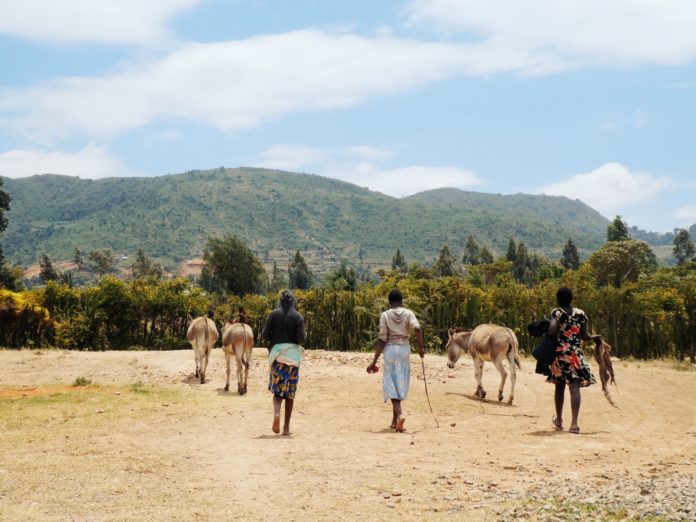By Lenah Bosibori
Nairobi, Kenya: Activists in Kenya are calling on the government to ban donkey trade and close all its four licensed slaughterhouses. Speaking recently in Nairobi Eric Kimani Board Chair Brooke East Africa said that donkey numbers are going down due to slaughter and theft.
“Donkey numbers have gone down in Kenya due to slaughter and theft when donkeys are stolen, women and children suffer most,” we need to partner with the government to save the donkeys,” said Kimani.
He adds that the government made a big mistake of licensing the slaughterhouses but the mistake can be corrected.

“If donkey slaughtering continues, Kenya will finish its donkeys by 2023,” added Kimani. According to Fred Ochieng Brooke East Africa CEO, donkey trade is not beneficial to the country. “By saving these animals, we are saving the livelihoods of so many people,” said Ochieng.
Simon Pope a Campaigns manager donkey sanctuary UK says that donkey business is a short business benefiting fewer people.
“This is a trade of lots of dollars for a short period of time, donkeys support Kenyans in their entire life, we should think about the longer benefit,” added Pope.
A report by Kenya Agricultural Livestock Research organization says that investment in donkey breeding research may be an option to increase the donkey population.
Also, the report says that the dilemma of investors who were licensed by the government to regain their return on investment.
According to the report, Kenya’s gross revenue from donkey meat and skin was Kshs 1.82 billion in (April 2016-December 2019). A total of 301,977 donkeys were slaughtered since the commissioning of export donkey abattoirs in Kenya.
“Kenya should develop guidelines on management practices for enhanced reproduction, higher producing donkey breeds may serve donkey milk producers in Kenya,” read part of the report.
The report also cited enforcement of laws on importation of animals to ascertain the cross-border smuggling of donkeys into Kenya to minimize risks of transboundary diseases.
A ban on pregnant donkeys is recommended, development and adoption of pensive pregnant diagnostic kits for use prior to purchase or admission of donkeys into the slaughterhouses made mandatory according to the report.
Further, the reports say that laws in the animal movement should be enforced and mechanisms to ascertain ownership and sale at the local level enhanced to curb donkey theft.
Kenya has four licensed donkey slaughterhouses which have so far created employment of 657 local communities.














